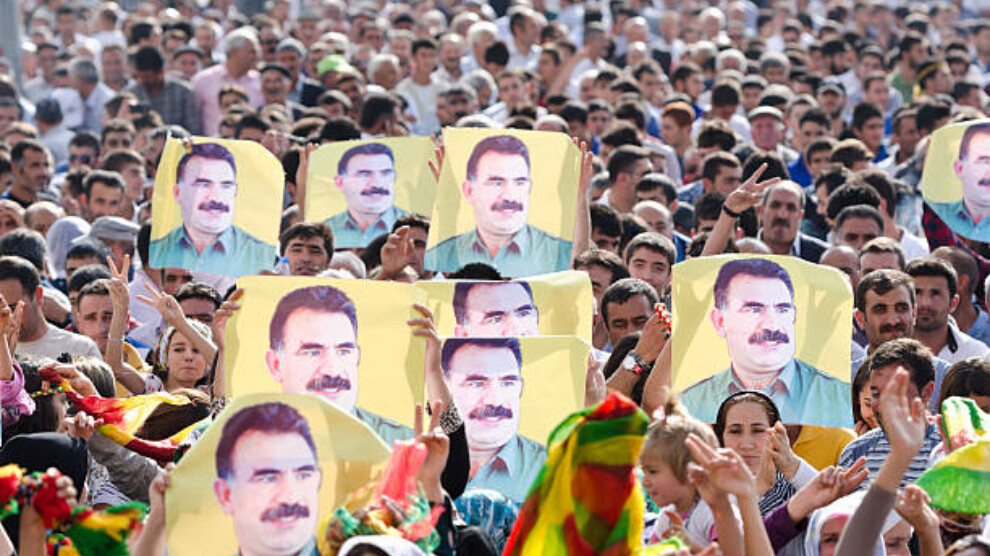International women's delegation visits Council of Europe
An International women's delegation organized by the Kurdistan Free Women's Movement visits the Council of Europe.
An International women's delegation organized by the Kurdistan Free Women's Movement visits the Council of Europe.

An International Delegation organized by the Free Women's Movement of Kurdistan, visited the Council of Europe from 23 to 26 January, to try to make the situation of human dignity and other rights violations of Abdullah Öcalan visible.
In addition, the delegation sought to make visible the importance that the thought of this Kurdish leader has for women around the world in their different liberation processes, and also draw attention to the serious violation of Human Rights of persons deprived of liberty in Turkey, especially women imprisoned for political reasons, mostly, for showing support to Abdullah Öcalan's thinking.
This delegation was made up of Sawsan Chouman, director of the Nun Initiative in Lebanon, which is in charge of studying and disseminating Abdullah Öcalan's thoughts among Arab women in the Middle East and the North of Africa; Diana Restrepo from Colombia, in Abya Yala (known in the westernized world as Latin America), who is professor of Law and activist for the Human Rights of Women in Prison; Sylvie Jan, the Co-President of the France-Kurdistan Association, which was created in response to the triple femicide of three Kurdish activists, committed by the Turkish secret services in Paris on January 9, 2013, and which is dedicated to spreading knowledge about the Kurdish people to foster solidarity with them.
The delegation attended some sessions of various committees of the Council of Europe and held meetings with different deputies, as well as with some other people who work in various groups within the Council. There were meetings, for example, with the Office for Legal Affairs and Human Rights and the Monitoring Office, in charge of checking the compliance of the obligations imposed on all the Member States of the Council of Europe, including Turkey.
This rapprochement with the European institutions tried to recall, among other things, that since 2014 the European Court of Human Rights (ECHR) ordered Turkey to make changes to the non-reviewable life sentence that has been imposed, in addition to many other people, to Abdullah Öcalan, in the sense that any life sentence that does not contemplate any possibility of parole when the social reintegration of the convicted person is proven, is contrary to the so-called "right to hope".
It was also recalled that the ECHR has also highlighted the importance of people deprived of their liberty, including Öcalan and the other three people deprived of their liberty in Imrali and the other Turkish prisons, to be able to have continuous communication with their lawyers and family members, something that has not happened for many years. Some members of the Council of Europe have pledged to highlight this in their next reports.
The delegation noted with sadness that the European institutions do not have fast and effective mechanisms that make it possible to ensure that the European Human Rights Convention is complied with in Turkey, but welcomed the co-commitment of some people that integrate it in favor of the defense of Human Rights, and wants to insist on the need for media and social pressure to be applied to all the deputies of the Council of Europe, to take seriously the understanding of the Kurdish question, especially in Turkey, and do something so that this country complies with the requirements of respect for Human Rights that any member of the Council of Europe must follow, and respect the decisions of the ECHR and the European Committee for the Prevention of Torture (CPT) with which this delegation was unfortunately unable to meet, despite of having tried, and of being very important for the humanitarian urgency that information be given about the health of Abdullah Öcalan and to guarantee he will be able to communicate with his lawyers.